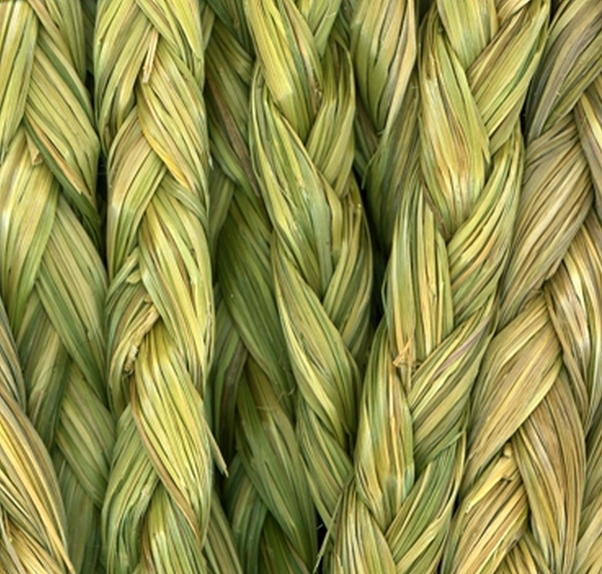Keeping the World Whole and Healthy (Linda Thompson)
Part 1 of 4, from Reflections on BRAIDING SWEETGRASS, a special edition of AllCreation.
Professor Robin Wall Kimmerer
Guidelines for an Honorable Harvest of Our Non-Human Kinfolk
Robin Wall Kimmerer (SUNY Distinguished Teaching Professor of Environmental Biology and Founder and Director of the Center for Native Peoples and the Environment) is an enrolled and practicing member of the Citizen Potawatomi Nation, a first people settling our Americas. Their original territory, centered in New York state, is now their tribal home, providing residence to human people and their ancestral kindred - the Maple People. Ms. Kimmerer testifies that she wrote Sweetgrass hoping to inspire an “authentic revitalization of relationship with the land. I heard longing from the trampled Earth herself to be loved and honored again. Longing from Sandhill cranes and wood thrushes and wild irises just to live. Notably, healing the Earth must be accompanied by a prescription to avoid misuse.”
The guidelines set forth in The Honorable Harvest define the small acts of daily life which ensure a whole and healthy world, a gift to be passed on, just as it came to us. (p.XII) Ms. Kimmerer’s academic knowledge as well as the experiential teachings and beliefs of her People determine both the subject matter and spiritual tone of Braiding Sweetgrass.
Sweetgrass, a root plant identified with the Potawatomi Nation is viewed as a “more-than-human teacher of healing and a symbol of kindness and compassion.” (p.326) Its three strands when braided portray the unity of mind, body, and spirit which bind us not just to ourselves and to one another, but also to the created world – the “more-than-human world,” our kindred. Physically and metaphysically, non-human persons are recognized beings with awareness, intelligence, spirit, and personality. (p. 178) As such they are to be treated as kinfolk with respect , gratitude and reciprocity for their giving and our taking of life. Earth is a gift to all beings, a gift that engenders a responsibility of each to the other so that we might live in unity of mind and spirit.
Sweetgrass braids
Kimmerer identifies the Indigenous principles shaping our symbiotic relationship with the natural world as the Honorable Harvest. These guidelines of daily life will ensure the continuation of human and more-than-human life – a kindred world bound by kindness and compassion.
Selected Harvest guidelines are printed below:
Never take the first. Never take the last.
Take only what you need.
Take only that which is given.
Never take more than half. Leave some for others.
Never waste what you have taken.
Give thanks for what you have been given.
Give a gift, in reciprocity for what you have taken. (p.178)
Let us remember that “The earth is the Lord’s and the fullness thereof, the world and they who dwell therein.” Let us strive to fulfill our stewardship responsibilities to our Heavenly Father, to the human and the more-than-human creation. Let us live in kindness and compassion.
###
Linda Thompson is a lifelong Christian who grew up on a ranch and has a special relationship with the land. She is a member of the green team at First Baptist Church, Austin, TX., and a career librarian. These pieces were originally written for the First Baptist newsletter, April 2022.. See more of her writings here.







